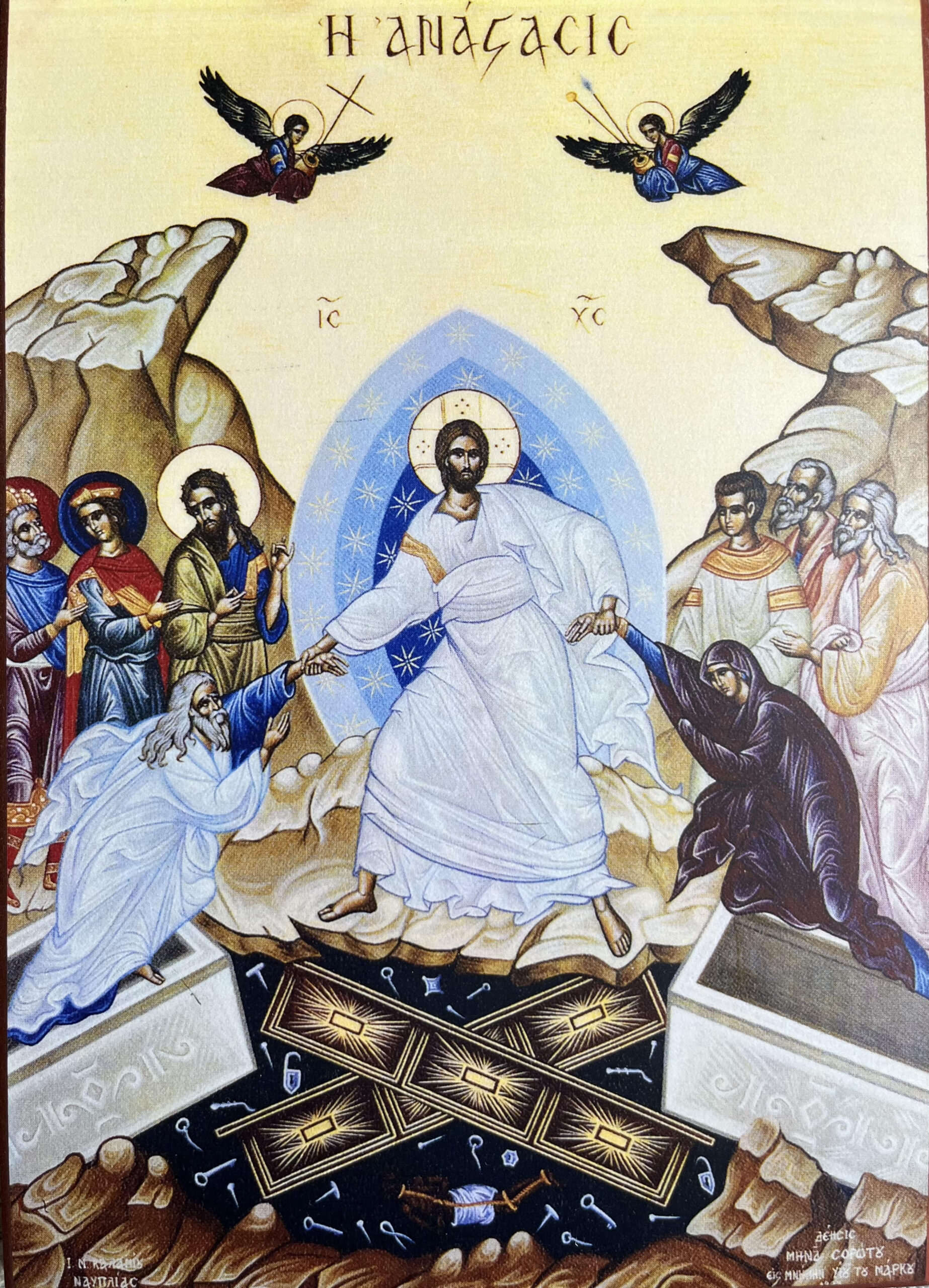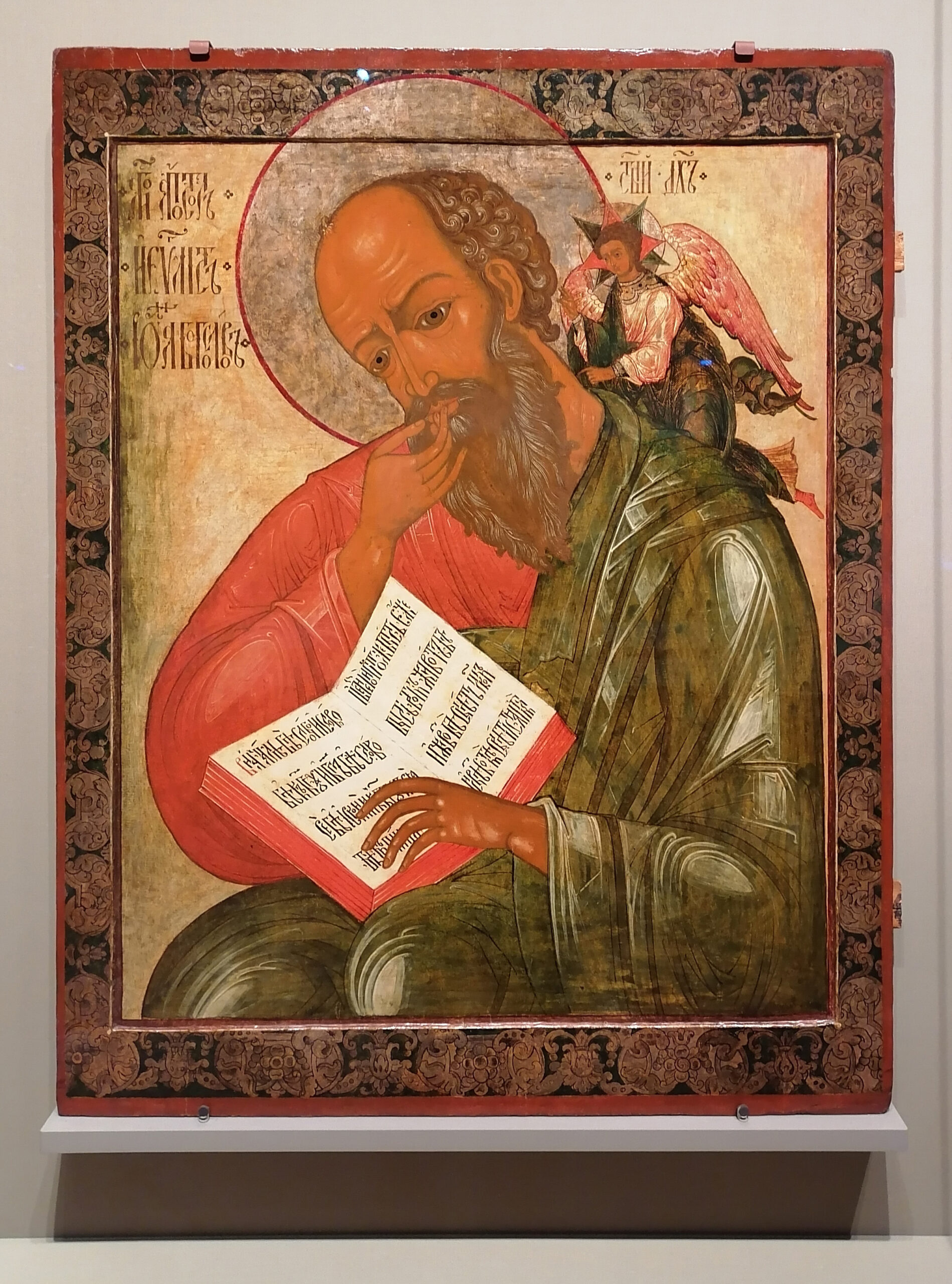Thus says the Lord to the Judeans: “O My people, what have I done to you, or wherein have I wearied You? To your blind I gave light; your lepers I cleansed; your paralytic I raised up. O My people; what I have done for you, and how have you recompensed Me? Instead of manna, gall; instead of water, vinegar; instead of loving Me, you nailed Me to the Cross. No longer will I endure; I will call to Me the nations, and they will glorify Me, together with the Father and the Spirit; and I will grant to them eternal life. ~12th Antiphon, 12 Gospels, Holy Thursday Evening, Trans. by Fr. George Papadeas
—
Now the chief priests and the whole council sought false testimony against Jesus that they might put him to death, but they found none, though many false witnesses came forward. At last two came forward and said, “This fellow said, ‘I am able to destroy the temple of God, and to build it in three days.’” And the high priest stood up and said, “Have you no answer to make? What is it that these men testify against you?” But Jesus was silent. And the high priest said to him, “I adjure you by the living God, tell us if you are the Christ, the Son of God.” Jesus said to him, “You have said so. But I tell you, hereafter you will see the Son of man seated at the right hand of Power, and coming on the clouds of heaven.” Then the high priest tore his robes, and said, “He has uttered blasphemy. Why do we still need witnesses? You have now heard his blasphemy. What is your judgment?” They answered, “He deserves death.”
Matthew 26: 59-66
The Holy Week narrative to this point has included the raising of Lazarus, the triumphal entry into Jerusalem, the last public and private teachings of Jesus, the Last Supper, the final instructions of Jesus, the betrayal and arrest of Jesus, and the denial by Peter which took place at the house of the high priest, Caiaphas.
We know from history that the area where Jesus was preaching, and teaching was controlled by two sets of laws. The Romans were the enforcers of civil law, Roman law. The chief priests of the temple were the enforcers of religious law, the Jewish Law. Under Roman law, there was a death penalty, which was carried out in a number of ways, the most notorious of which was crucifixion. While there were commandments in the Jewish Law that were punishable by death, the Romans being in power and controlling the civil and criminal governance of the land, only they were allowed to execute people.
Jesus had two “trials.” The first was in front of the chief priests and the council. They wanted Jesus put to death because they were afraid of Him, afraid He would convert people to His way of thinking, that they would then not belong to the temple, and that they, the Jewish leaders, would lose their power over the people. He was a threat that needed to be eliminated. The charge they brought against Jesus was “blasphemy”, that He called Himself the Christ, the Son of God. They brought many false witnesses, and finally two witnesses testified that Jesus could destroy the temple of God and build it in three days. Of course, this referred not to actual vandalism of the temple. It referred to the crucifixion and Resurrection, that Jesus would ultimately “destroy” the abuses of the temple by lying in the grave three days and rising from the dead. Judaism, which was based solely on God’s children waiting for a Messiah, would be “destroyed” as Jesus through the Resurrection would be no longer disputed as the Messiah, the Christ.
When confronted with these “charges”, Jesus remained silent. After all, it was a “kangaroo court” with false allegations. When the high priest demanded to know if Jesus were the Christ, Jesus replied “You have said so. But I tell you, hereafter you will see the Son of man seated at the right hand of power, and coming on the clouds of heaven.” (Matthew 26:64) The high priest said there was no need for more witnesses, that Jesus had uttered blasphemy in saying that He was the Christ. All the Jewish authorities agreed that He deserved death.
Because the Jews were not allowed to put anyone to death in this Roman-controlled province, they were determined to hand Jesus over to the Romans, urging them to find Him guilty of sedition, of making Himself a king, and threatening the rule of Caesar. The second “trial” was conducted by Pontius Pilate, the Roman Procurator. Of course, Jesus was not advocating an overthrow of the Roman government, and He was not proclaiming Himself as an earthly king. His Kingdom, He said, was not of this world. The Romans would take that statement, that He had a kingdom, combined with the protests of the mob, to condemn Jesus to death.
The Bible doesn’t say much about Jesus testifying in His “trial.” The hymn we are reflecting on, is written from Jesus’ perspective, as if He was addressing the Jewish leaders at trial. It is literary license. Jesus did not say these words, but had He addressed “the court,” it might have sounded like this: “You are condemning me, and why? In giving sight to the blind, cleansing lepers, raising the paralytic and other miracles, did I somehow weary you and upset you? What have I done that was so wrong, that instead of the life-giving manna that fell from heaven to feed God’s children in the desert, you give me gall; instead of the water that flowed from the rock to give drink to God’s people when they were thirsting, you gave me vinegar, that is bitter and not refreshing. Instead of meeting my love with love, you nailed me to the cross and killed me. That’s okay, though. If you won’t love Me or accept Me, I will move on from you. I will call all peoples to me, all the Gentiles that you loath because they are not “chosen.” From now on, anyone who wishes may follow after Me. And not only will they follow faithfully, they will glorify Me, as they glorify God and the Spirit. In exchange, I will grant to them eternal life.”
The hymns of Holy Thursday are a beautiful and powerful combination of Scripture, teaching, conjecture as to things Christ could have said (which are part of our hymnology now), and life application. There are two takeaways from this reflection. First, Christ’s message is for all the people. Second, if Christ is so good to us, and He is (even the fact that we are alive to read this message is a blessing), then why do we sell Him out so often by how we live? Why does what we do falsely testify to whom we really are—His children, His chosen people?
He who clothed Himself with light as with a garment, stood naked at the judgment; and received blows on His cheeks from the hands which He had fashioned. When the lawless people nailed the Lord of glory to the Cross, then the veil of the temple was rent, and the sun went dark, unable to endure the spectacle of God blasphemed, before Whom all the universe trembles. Him let us worship. (10th Antiphon, 12 Gospels, Holy Thursday Evening, Trans. by Fr. George Papadeas)
Christ chose to die for us. He chose us. We are His chosen. Therefore, let us act accordingly to reflect our chosen-ness, by choosing to follow after Him, who has chosen to save us.

